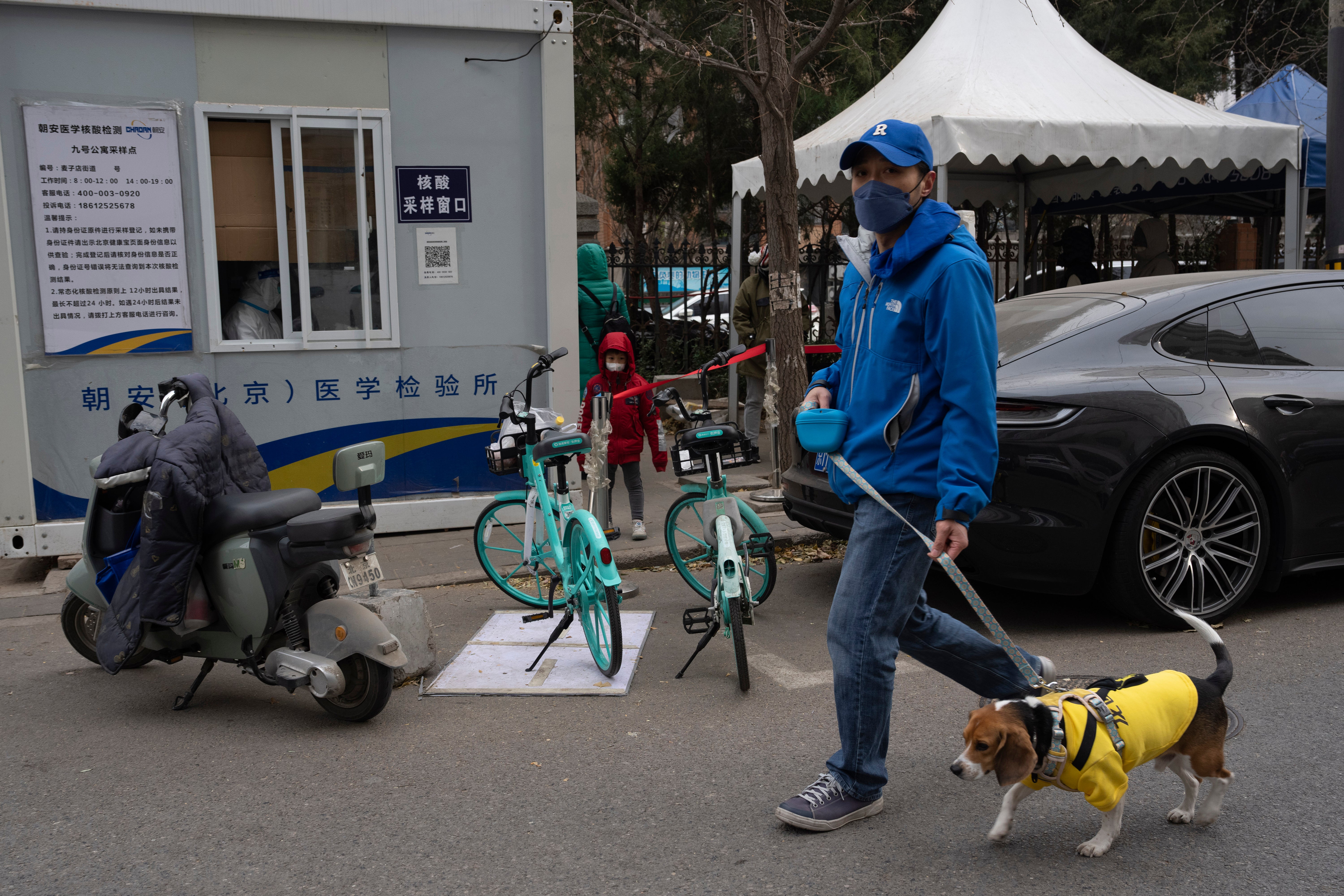Xi Jinping blames China’s Covid protests on ‘frustrated students’, report says
Chinese president’s remarks come as several cities ease severe ‘zero-Covid’ restrictions

China’s president Xi Jinping has blamed the continuing protests against the country’s strict Covid restrictions on “frustrated students”, according to a report.
His comments came during a three-hour meeting in Beijing on Thursday between Mr Xi and European Council president Charles Michel, reported the South China Morning Post.
During the meeting, Mr Michel “pleaded for use of vaccines and then raised the question of China’s measures and government measures”, a senior EU official was quoted as saying.
“And the response we got from the president was explaining why there were protests, claiming that after three years of Covid he had an issue because people were frustrated. It was mainly students, or teenagers in university,” they added.
While the Xi administration has not openly commented on the ongoing protests in the country, the president’s remarks during his meeting with Mr Michel are reportedly his first in relation to the unrest.
A second official said the Chinese leadership would try to encourage vaccinations in response to the protests.

“My sense was that this [exchange] was something that was informative. I had a feeling that China, on its side, would be increasingly looking to incentivise its citizens to be vaccinated, to follow a tiny bit the European experience,” the second official said.
Since 26 November, China has seen a large number of protests against the communist leadership’s strict pandemic controls and lockdowns that have kept hundreds of thousands in quarantine as the country continues to pursue its “zero-Covid” policy.
The protests have also morphed into demands for a change in the country’s leadership, with demonstrators calling for Mr Xi to stand down.
On Thursday, some of the restrictions were eased across the country, with several districts lifting lockdown measures in what is believed to be a move towards softening the strict rules after three years, as well as an effort to target the policies more effectively.
Several cities have rolled back PCR testing and called for the use of rapid antigen testing in its place. In Beijing, hospitals were asked not to turn away patients who presented without a negative PCR test. Children under three years old have also been exempted from PCR tests.
On Saturday, the southern city of Shenzhen announced that it would no longer require people to show a negative Covid test result to use public transport or enter parks, following similar moves by Chengdu and Tianjin, reported Reuters.
Officials in Guangzhou, where protesters scuffled with police who were wearing hazmat suits and marching in file to stop the demonstrators, eased restrictions on Wednesday.
“The uplifted mood isn’t universal,” a Guangzhou-based diplomat was quoted as saying. “Although a lot of people are enjoying new-found freedom, it’s worth noting that there are still hundreds of high-risk zones that are locked down throughout the city.”






Join our commenting forum
Join thought-provoking conversations, follow other Independent readers and see their replies
Comments